Advisory Board
-

Berrien Moore III
Chair
Dr. Berrien Moore III is an internationally recognized Earth scientist who has been honored by National Aeronautics and Space Administration (NASA), the National Oceanic and Atmospheric Administrat... moreDr. Berrien Moore III is an internationally recognized Earth scientist who has been honored by National Aeronautics and Space Administration (NASA), the National Oceanic and Atmospheric Administration (NOAA), the American Institute of Aeronautics and Astronautics, the American Meteorological Society, and the International Academy of Astronautics. Berrien Moore III received his Bachelor of Science in Mathematics in 1963 from the University of North Carolina and his PhD in Mathematics in 1969 from the University of Virginia. He joined the University of New Hampshire (UNH) mathematics faculty in 1969 and became a tenured professor in 1976. He was recognized by UNH in 1992 for research excellence and was named University Distinguished Professor in 1997. From 1997 to 2008, Moore served for as the Director of the Institute for the Study of Earth, Oceans and Space at UNH. During his period at UNH, Moore also held numerous visiting scientist positions including visiting Senior Scientist at the Laboratoire de Physique et Chimie Marines, Universite Pierre et Marie Curie in Paris and at the International Institute of Meteorology at the University of Stockholm. Earlier, he was a Senior Research Scientist at the East-West Center in Honolulu and a Fellow at the Woods Hole Oceanographic Institution. In 2008, Moore left UNH to serve as the founding Executive Director of Climate Central, a think-tank based in Princeton, New Jersey and Palo Alto, California, which is dedicated to providing objective and understandable information about climate change. In the summer of 2010, Moore joined the University of Oklahoma, where he holds the Chesapeake Energy Corporation Chair in Climate Studies. He also serves as Dean of the College of Atmospheric and Geographic Sciences, Director of the National Weather Center, and Vice President for Weather and Climate Programs. He has published extensively on the global carbon cycle, Earth System science, biogeochemistry, remote sensing, environmental and space policy, and mathematics. Professor Moore chaired the overarching Scientific Committee of the International Geosphere-Biosphere Programme (IGBP) from 1998 to 2002. He led the July 2001 Open Science Conference on Global Change in Amsterdam and is one of the four architects of the Amsterdam Declaration on Global Change. He was the Coordinating Lead Author for the final chapter, "Advancing our Understanding," of the Third Assessment Report of the Intergovernmental Panel on Climate Change (IPCC), which was released in Spring 2001, and as such has been honored for contributing to the award of the 2007 Nobel Peace Prize to the IPCC. He has served on numerous committees at the National Academy of Science; over last two decades, he served as Chairman of the National Research Council’s (NRC’s) Committee on International Space Programs of the Space Studies Board that, in collaboration with the European Space Sciences Committee, jointly published U.S.-Europe Collaboration in Space Science. In 1999, he completed his Chairmanship of the National Academy's Committee on Global Change Research with the publication of Global Environmental Change: Research Pathways for the Next Decade. From 2004 to 2007, Moore co-chaired (with Rick Anthes, Past-President of University Cooperation of Atmospheric Research) the NRC decadal survey, Earth Observations from Space: A Community Assessment and Strategy for the Future. This was the first Decadal Study for the Earth Sciences and had significant impact in the United States and internationally. Most recently, he was member of the Informing Panel of the overall NRC study on America’s Climate Choices and was a member of the Committee that published Beyond Landsat: Meeting the Needs for Sustained Land Imaging. From 1984 to 1988, Professor Moore served as a committee member of NASA's senior science advisory committee, the Space and Earth Science Advisory Committee (SESAC), which published its report in 1986: The Crisis in Space and Earth Science: A Time for a New Commitment. In 1988, he assumed Chair of SESAC and served until 1992. He concurrently served as a member of the NASA Advisory Council. Additionally, he has served NASA through a variety of other positions including Chair of the EOS Payload Advisory Committee, member and Chair of NASA’s Earth Science and Applications Committee, Goddard Space Flight Center Review Committee, and member of the Executive Committee for the Earth System Science Study. He currently serves on the JPL Advisory Council. From 2004-2005, Moore chaired the NOAA Research Review Team, and from 2010 to 2012 he served on Research and Development Portfolio Review of the NOAA Science Advisory Board. In recognition of his lifelong dedication to science, he has been the recipient of numerous honors, including the NASA Distinguished Public Service Medal for outstanding service to the agency – NASA’s highest civilian honor; the NOAA Administrator’s Recognition Award; and the 2007 Dryden Lectureship in Research Medal of the American Institute of Aeronautics and Astronautics. He is an elected Fellow in the American Meteorological Society and the International Academy of Astronautics. less -
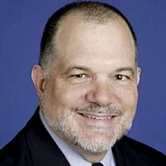
Otis Brown
Otis Brown is the founding Director of the Cooperative Institute for Climate and Satellites – North Carolina, part of the National Oceanic and Atmospheric Administration's National Climatic Data Ce... moreOtis Brown is the founding Director of the Cooperative Institute for Climate and Satellites – North Carolina, part of the National Oceanic and Atmospheric Administration's National Climatic Data Center. He is also the former Dean of the Rosenstiel School of Marine and Atmospheric Science and Professor in the Division of Meteorology and Physical Oceanography at the Rosenstiel School. Dr. Brown is a Fellow of the American Meteorological Society and the American Association for the Advancement of Science. He holds a Ph.D. in Physics from the University of Miami, a Master of Science degree in Theoretical Physics from the University of Miami, and a Bachelor of Science in Physics from North Carolina State University. Dr. Brown’s specialties include satellite oceanography, the development of quantitative methods for processing and use of satellite remotely-sensed observations to study Earth System processes with a focus on ocean color and infrared observations, and the development and application of new approaches to study climate variability and stakeholder engagement. less -
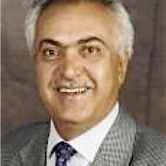
Soroosh Sorooshian
Soroosh Sorooshian is the Director of the Center for Hydrometeorology & Remote Sensing and Distinguished Professor of Civil & Environmental Engineering and Earth System Science Departments at UC Ir... moreSoroosh Sorooshian is the Director of the Center for Hydrometeorology & Remote Sensing and Distinguished Professor of Civil & Environmental Engineering and Earth System Science Departments at UC Irvine. His area of expertise is Hydrometeorology, water resources systems, climate studies and application of remote sensing to earth science problems with special focus on the hydrologic cycle and water resources issues of arid and semi-arid zones. Dr. Sarooshian is a member of the US National Academy of Engineering and the International Academy of Astronautics. He is a fellow of the American Association for the Advancement of Science, the American Geophysical Union, the American Meteorological Society, and the International Water Resources Association. Dr. Sarooshian was the Past Chair of the Science Steering Group of Global Energy and Water Cycle Experiment of the World Climate Research Programme and was a U.S. Member of the Hydrology Commission for WMO. Dr. Sarooshian has been a the Recipient of the 4th Prince Sultan Bin Abdulaziz International Prize for Water Resources Management & Protection, the NASA Distinguished Public Service Medal, and the William Nordberg Memorial Lecture at the NASA Goddard Space Flight Center. In 2010, Professor Sorooshian was named an honorary Professor at Beijing Normal University, China and Associate Fellow of TWAS, The Academy of Sciences for developing countries. Dr. Sarooshian has testified to both Senate and House sub-committees on earth observations from space and water resources issues. less -
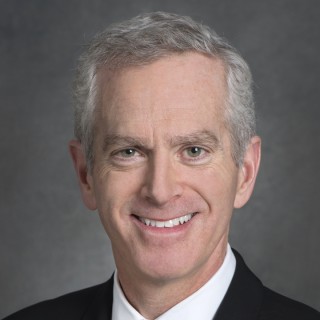
William Collins
Dr. William Collins is an internationally recognized expert in climate modeling and climate change science. He serves as the Director for the Climate and Ecosystem Sciences Division (CESD) in the E... moreDr. William Collins is an internationally recognized expert in climate modeling and climate change science. He serves as the Director for the Climate and Ecosystem Sciences Division (CESD) in the Earth and Environmental Sciences Area (EESA) at the Lawrence Berkeley National Laboratory (LBNL, Berkeley Lab). In addition Dr. Collins is a senior scientist at LBNL, a Professor in Residence in the Department of Earth and Planetary Science at the University of California (UC), Berkeley, and the Director of the Climate Readiness Institute (CRI), a multi-campus initiative to prepare the Bay Area for climate change. Before joining UC Berkeley and Berkeley Lab, Dr. Collins was a senior scientist and Chair of the Scientific Steering Committee for the DOE/NSF Community Climate System Model project at the National Center for Atmospheric Research (NCAR). He was a Lead Author on the Fourth Assessment of the Intergovernmental Panel on Climate Change (IPCC), for which the IPCC was awarded the 2007 Nobel Peace Prize, and is also a Lead Author on the Fifth IPCC Assessment. Dr. Collins is a Fellow of the American Association for the Advancement of Science (AAAS) and was awarded the DOE Secretarial Honor Award for launching DOE’s Accelerated Climate Model for Energy in 2015. less -
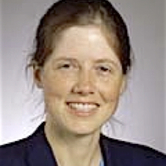
Sarah Gille
Sarah Gille is a faculty member at the University of California San Diego in the Department of Mechanical and Aerospace Engineering and holds a joint appointment at Scripps Institution of Oceanogra... moreSarah Gille is a faculty member at the University of California San Diego in the Department of Mechanical and Aerospace Engineering and holds a joint appointment at Scripps Institution of Oceanography. Dr. Gille's research focuses on the Southern Ocean, an area where the Pacific, Atlantic and Indian Oceans converge and her research interests include: Southern Ocean climate and dynamics; wind-forcing of the ocean and heat transport via the Antarctic Circumpolar Current; subgrid-scale parameterization for climate models; satellite oceanography from altimeter and scatterometer data; and interpretation of ocean general circulation model output. Dr. Gille works with environmental engineers in the Jacobs School's Mechanical and Aerospace Engineering Department and with researchers at UCSD's Scripps Institution of Oceanography to study ocean fluid motions. Sarah Gille earned a BS in physics at Yale and a PhD in physical oceanography from the Massachusetts Institute of Technology/Woods Hole Oceanographic Institution Joint Program. She did postdoctoral research at Scripps Institution of Oceanography and at the University of East Anglia, and was a faculty member at the University of California, Irvine. less -
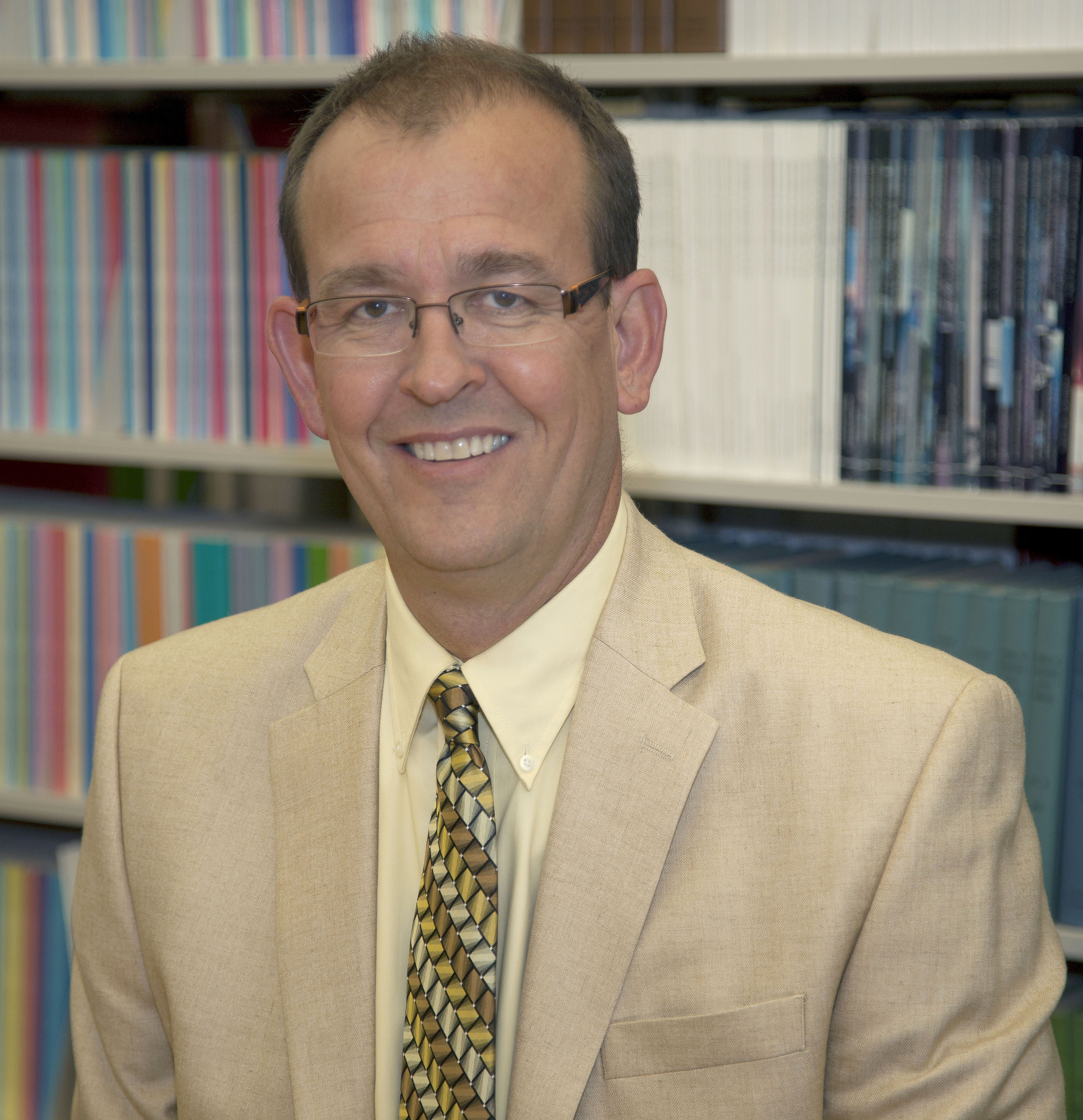
Jim Hurrell
James (Jim) W. Hurrell is the Director of the National Center for Atmospheric Research (NCAR). He is also a Senior Scientist in the Climate and Global Dynamics Division (CGD) of the NCAR Earth Syst... moreJames (Jim) W. Hurrell is the Director of the National Center for Atmospheric Research (NCAR). He is also a Senior Scientist in the Climate and Global Dynamics Division (CGD) of the NCAR Earth System Laboratory (NESL). Jim received a Ph. D. (1990) in Atmospheric Science from Purdue University. He is the former Chief Scientist of Community Climate Projects in CGD, which includes the Community Earth System Model (CESM), and a former Director of both CGD and NESL. Jim also spent a year as a visiting scientist at the Hadley Centre for Climate Prediction and Research in the U.K. Jim's research has centered on empirical and modeling studies and diagnostic analyses to better understand climate, climate variability and climate change. He has authored or co-authored around 100 peer-reviewed journal articles and book chapters, as well as dozens of other planning documents, workshop papers, and editorials. Jim has also edited several books, and he has been acknowledged as a Highly Cited Researcher by Thomson-ISI (2004). Jim has given more than 150 professional invited and keynote talks, as well as many other contributed presentations at national and international conferences. Jim has convened around two-dozen national and international workshops, and he has served several national and international science-planning efforts. Jim has been extensively involved in the World Climate Research Programme (WCRP) on Climate Variability and Predictability (CLIVAR), including roles as co-chair of the Scientific Steering Group (SSG) of both U.S. and International CLIVAR, Chair of the Scientific Organizing Committee for the WCRP Open Science Conference (2011), and membership on several other CLIVAR panels. He has also served the International Geosphere-Biosphere Programme (IGBP) as a member of the Global Ocean Ecosystem Dynamics (GLOBEC) SSG and the CLIVAR-PAGES (Past Global Changes) working group. Jim has been involved in assessment activities of the Intergovernmental Panel on Climate Change (IPCC) and the U.S. Climate Change Science Program (CCSP). He has served on several National Research Council (NRC) panels, and he has provided briefings and testimonies to both the U.S. Senate and the House of Representatives on climate change science. Jim was elected to and served on the Council of the American Meteorological Society (AMS). He is a Fellow of the Royal Meteorological Society (2000), AMS (2006), and the American Geophysical Union (2010). Jim is a recipient of the AMS's prestigious Clarence Leroy Meisinger Award (2001), the NCAR Outstanding Publication Award (1997), the Outstanding Alumnus Award from the Earth and Atmospheric Science Departments at both the University of Indianapolis (2001) and Purdue University (2004), and the Distinguished Alumnus Award from the Purdue College of Science (2006). In 2011, Jim was honored for his contributions to climate science by giving the Fridtjof Nansen Memorial Lecture to the Norwegian Academy of Science and Letters, where he was also awarded the Nansen Medal. less -
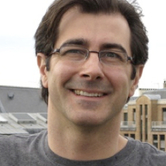
David Neelin
David Neelin is a Professor of Atmospheric and Oceanic Sciences, and Institute of Geophysics and Planetary Physics, at the University of California, Los Angeles. He is a Fellow of both the American... moreDavid Neelin is a Professor of Atmospheric and Oceanic Sciences, and Institute of Geophysics and Planetary Physics, at the University of California, Los Angeles. He is a Fellow of both the American Meteorological Society and the Royal Meteorological Society. He is the recipient of the National Science Foundation's Special Creativity Award, the C. L. Meisinger Award of the American Meteorological Society, and the Presidential Young Investigator Award. Dr. Neelin's research interests have focused on ocean-atmosphere interaction, tropical atmospheric dynamics, and building atmospheric and ocean-atmosphere models of intermediate complexity. less -

Alan O'Neill
Alan O'Neill is the Director of the Natural Environment Research Council's new National Centre for Earth Observation. He began his research career at UK The Met Office, and subsequently joined the ... moreAlan O'Neill is the Director of the Natural Environment Research Council's new National Centre for Earth Observation. He began his research career at UK The Met Office, and subsequently joined the University of Reading as Director of the UK University Global Atmospheric Modelling Programme, a post he held concurrently with a Professorship in the Department of Meteorology. He was the founding director of the Data Assimilation Research Centre, an institution which synthesises a wide variety of satellite data to obtain an accurate global picture of the climate system. Dr. O'Neill has served as a Vice-President of The Royal Meteorological Society, and is currently a member of the European Space Agency's Scientific Advisory Committee. less -

Venkatachalam "Ram" Ramaswamy
Venkatachalam "Ram" Ramaswamy is the Director of the Geophysical Fluid Dynamics Laboratory and a Professor in the Atmospheric and Oceanic Sciences Program at Princeton University. He has served as ... moreVenkatachalam "Ram" Ramaswamy is the Director of the Geophysical Fluid Dynamics Laboratory and a Professor in the Atmospheric and Oceanic Sciences Program at Princeton University. He has served as a senior scientist, group leader of the Atmospheric Physics and Chemistry division, and manager of the National Oceanic and Atmospheric Administration's (NOAA) Climate Research and Modeling Program where his work focused on natural and human influences on climate. Dr. Ramaswamy is also a Lecturer with Rank of Professor, at the State University of New York in Albany. less -

Tapio Schneider
Tapio Schneider is the Frank J. Gilloon Professor of Environmental Science and Engineering and the Director of the Ronald and Maxine Linde Center for Global Environmental Science at the California ... moreTapio Schneider is the Frank J. Gilloon Professor of Environmental Science and Engineering and the Director of the Ronald and Maxine Linde Center for Global Environmental Science at the California Institute of Technology. Dr. Schneider has been a Houghton Lecturer at the Massachusetts Institute of Technology and was named one of Discover Magazine's “Top 20 Scientists under 40”. He has been a David and Lucile Packard Fellow, an Alfred P. Sloan Research Fellow, a NASA Earth System Science Fellow, and a Fellow of Studienstiftung des deutschen Volkes (German National Scholarship Foundation). Dr. Schneider was the recipient of the James R. Holton Junior Scientist Award by the American Geophysical Union. less


